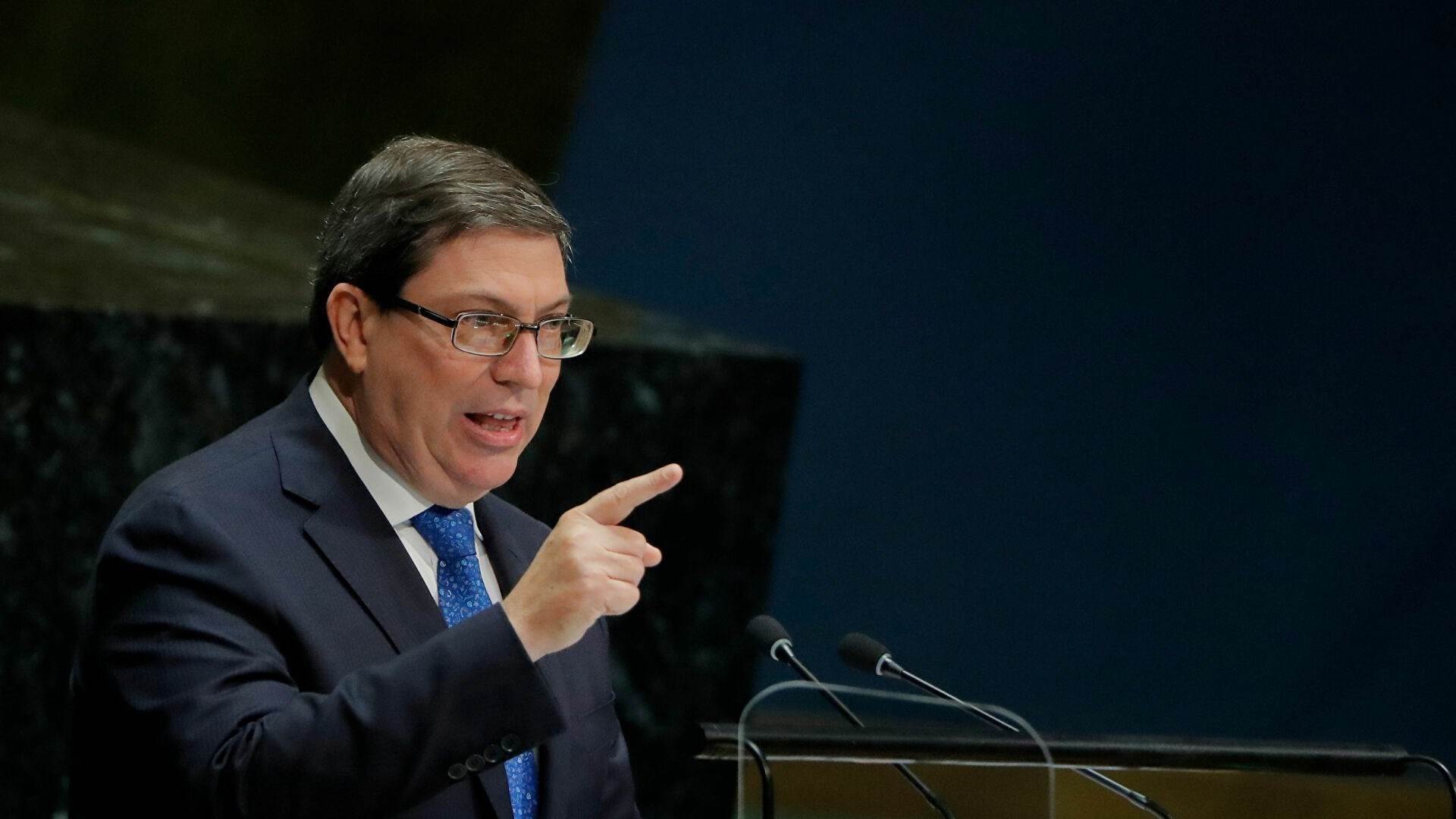Havana: Washington Attempting to Destabilize Cuba through Internet
Cuban Foreign Minister Bruno Rodriguez Parilla says a new VPN (Virtual Private Network) has been founded with support by Washington to destabilize Cuba through the internet.
-

Cuba's Foreign Minister Bruno Rodriguez
Cuban Foreign Minister, Bruno Rodriguez Parilla, tweeted on Sunday, that a new VPN service has been announced "that is oddly free for users in Cuba, while the rest of the world has to pay for it," adding "No one will be taken aback by the fact that this service is sustained by 19 servers located in the United States."
Rodriguez noted that when a service like this is free only for Cubans, then that means "they want to sell our sovereignty."
“This is a lucrative business for the anti-Cuban subversive industry that desperately follows a destabilizing plan doomed to fail,” Rodriguez stressed.
Cuando un producto como este es gratis solo para los residentes en #Cuba significa que quieren vender nuestra soberanía. Se trata de un lucrativo negocio para la industria subversiva anticubana que apuesta desesperadamente por un plan desestabilizador condenado al fracaso.
— Bruno Rodríguez P (@BrunoRguezP) November 14, 2021
2/2
Earlier, the Foreign Minister accused Twitter and Facebook of manipulating their algorithms to portray protests in the country as a mass uprising.
The US threatens Cuba with further sanctions
Cuban President Miguel Diaz-Canel had stated in a televised appearance on Saturday that his supporters were "ready to defend the revolution" in the face of an opposition demonstration that calls for the release of political prisoners.
"We are a revolution open to dialogue, to debate, but we are a society closed to pressure, closed to blackmail, and closed to foreign interference."
On October 22, Juan Gonzalez, a top advisor on Latin America to US President Joe Biden, threatened Havana with imposing further sanctions if it prosecuted the promoters of the march called by the Cuban opposition on 15 November, which authorities refused on grounds of their illegality.
Moreover, on October 4, Cuba's Ministry of Interior noted that after allegations of sonic attacks in 2017, the country launched a comprehensive investigation into the possible crime. The Ministry confirmed that no criminal or scientific evidence of alleged acoustic attacks against US diplomats in the capital was found.
US-Cuban relations have witnessed a great deal of tension after the riots that erupted in a number of Cuban cities on July 11, resulting in one death and dozens of injuries. The demonstrations were considered by Cuba as part of a Washington strategy for regime change.

 2 Min Read
2 Min Read








